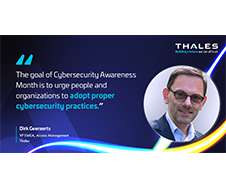Healthcare data breach affects 2 million; Malware allows cybercriminals to steal payment card numbers
Security Boulevard
JUNE 16, 2022
A new study by Surfshark discovered that the average American has been affected by at least seven data breaches since 2004. internet user has lost 27 data points on average to online breaches, most of them emails, passwords and usernames,” by far the most out of any country around […].











Let's personalize your content